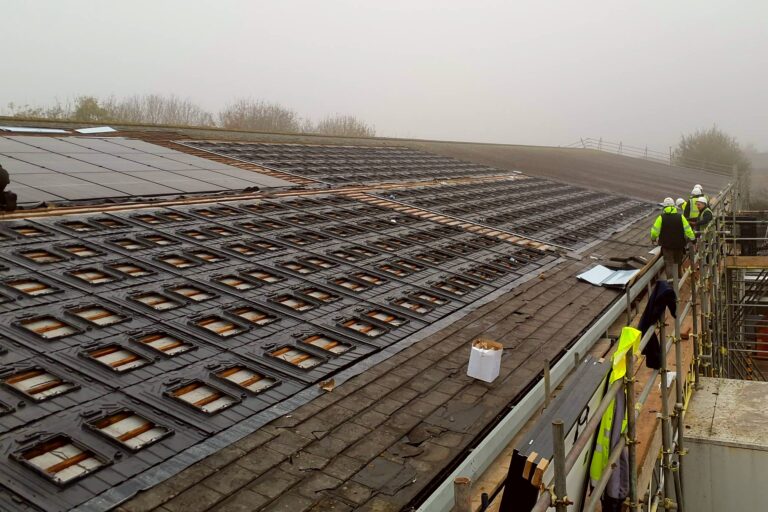Telecommunications company Vodafone is utilising on-site solar panels, big data analytics, artificial intelligence (AI) and machine learning to drive energy efficiencies across its UK networks.
The technologies are being harnessed in a bid to reduce the carbon footprint of Vodafone’s network, which accounts for around 95% of its total energy consumption, the company said.
Utilising AI technologies to drive energy efficiency could be one step in reducing the company’s carbon footprint with Vodafone having established a net zero by 2027 target. Optimising its network so it requires less energy could see the introduction of clean technologies such as solar.
This vision is already being realised with the company having installed its first on-site solar panels at a mobile telephone exchange (MTX) network site in Gloucester. The site, which houses technology used to route phone calls and data to and from mobile devices, will use electricity generated from the solar panels to reduce its reliance on the national grid.
The project has seen 720 solar PV panels installed on the rooftop of the Gloucester MTX site. This will generate around 240,000kWh of renewable electricity a year and thus supply 12% of the site’s annual energy requirement. The solar panels have been built into the roof tiles as opposed to being raised above them.
Vodafone is additionally using a big data analytics platform, which has been developed in-house, to drive energy efficiencies across 11,500 of its radio base stations. The use of this technology helps energy specialists identify “consumption anomalies” thus allowing changes to be made where consumption is high.
This again will reduce the need for vast amounts of energy, meaning less reliance on imported energy from the national grid, and instead more use of on-site renewable generation. Targeted actions can also be implemented to make sites more energy efficient.
Alongside the big data analytics platform, Vodafone is exploring the use of the Internet of Things (IoT) and AI via the Vodafone Smart Sites initiative. This enables the company to manage its highest energy-consuming radio base stations remotely and reduce the need for engineer visits. As of March 2023, 1,300 sites had been connected.
“We all recognise the need to drive energy efficiencies – both from a financial and environmental perspective. The fact we’ve been able to decouple the link between data carried, energy consumption and carbon emissions is thanks to our laser-focus on energy efficiency – and nowhere is this more important than across our network,” said Andrea Dona, UK Network director at Vodafone.
“Using our own technologies to deliver brilliant programmes such as big data and Smart Sites is hugely impactful. Onsite power generation is another important ambition, and I’m delighted we now have our first on-site solar up and running at our Gloucester MTX.
“We will continue to drive innovation in this space.”





